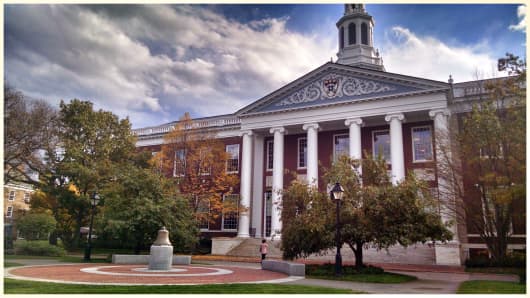This article originally ran on LinkedIn.
If the same extended family produced Ted Bundy, Jeffrey Dahmer, and Charles Manson, at some point it would probably be worth asking, "Hey, do we really know what we're doing here? Cousins Randy, Billy, and John turned out okay, but remember cousin Jeff? He kept a dude's head inside of his fridge. And Charlie? That guy was flat-out crazy."
That, essentially, is the point of journalist Duff McDonald's new book, The Golden Passport: Harvard Business School, the Limits of Capitalism, and the Moral Failure of the MBA Elite. While there are no heads-in-fridges, McDonald argues something must be amiss if the world's most prestigious business school produced the man who managed the Vietnam War (Kennedy Secretary of Defense Robert McNamara), the man who led us into the Iraq war (former President George W. Bush), and the man who took Enron from being the world's most admired company to being the perennial example of corporate fraud (former CEO and current resident of the Federal Prison Camp in Montgomery, Alabama, Jeffrey Skilling).
According to McDonald, the repeated high-profile failures in leadership associated with prominent alumni of Harvard Business School (HBS), along with the school's relentless focus on shareholder value that began in the 1980s with the hiring of Professor Michael Gerson, are two ways the school has wreaked havoc on the economy.
But is HBS really one of the root causes of all that's wrong with the economy?
Clearly, the school has had a huge impact on American and global business practices. There are more Fortune 500 CEOS with MBAs from Harvard than from Wharton, Stanford, and European business school INSEAD combined. And George W. Bush and Robert McNamara weren't the only Harvard MBAs to serve at the highest levels of government. Former Treasury Secretary Henry Paulson, current Illinois Governor Bruce Rauner, poor man's Rasputin/former Breitbart Chairman Steve Bannon, and former New York Mayor Michael Bloomberg all earned their MBAs at Harvard.
So yes, HBS has had a considerable impact on how the public has come to understand the role of business in society.



